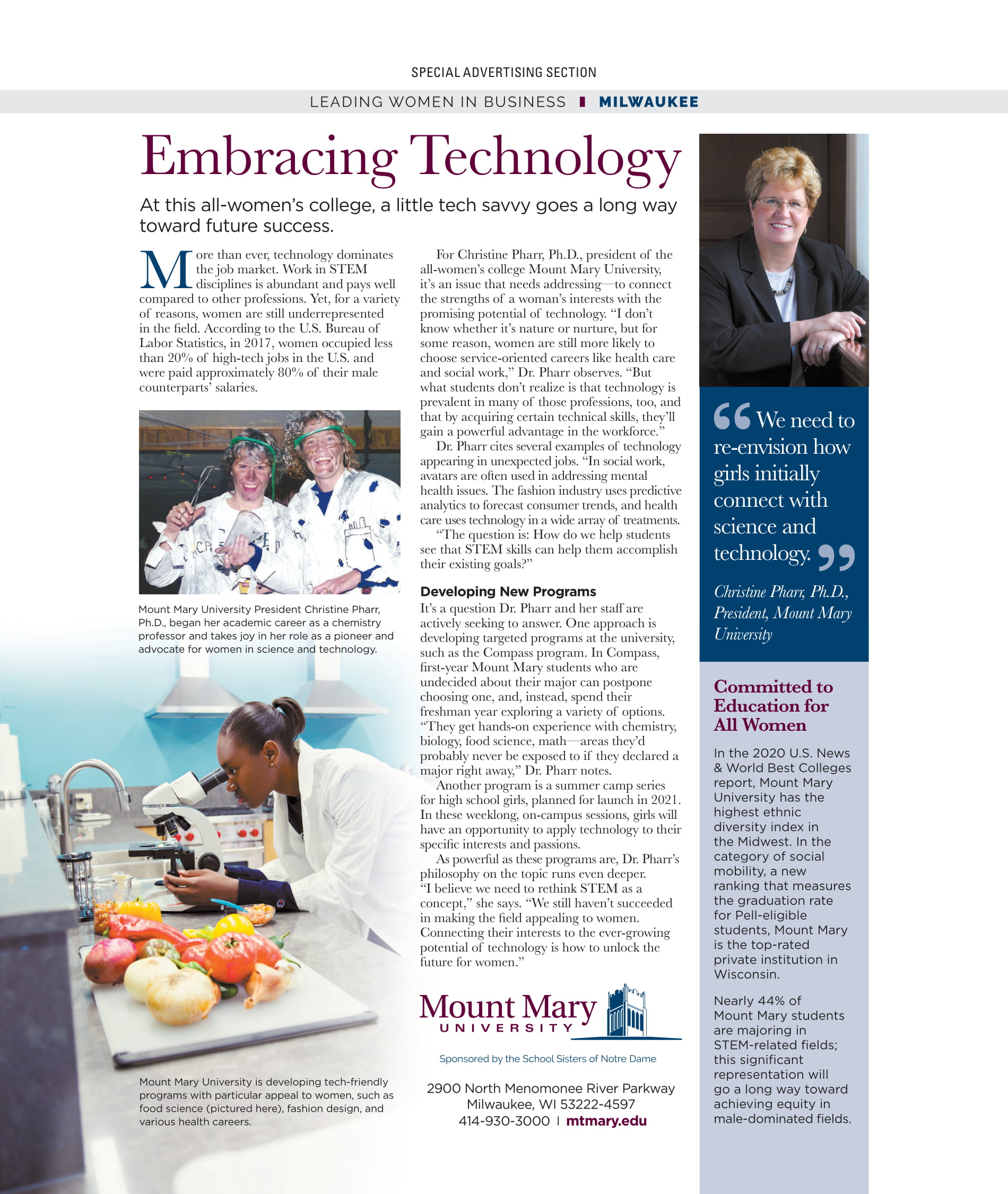Embracing Technology
Read an interview with President Christine Pharr, Ph.D., published in the recent issue of Fortune and Entrepreneur magazines.
More than ever, technology dominates the job market. Work in STEM disciplines is abundant and pays well compared to other professions. Yet, for a variety of reasons, women are still underrepresented in the field. According to the U.S. Bureau of Labor Statistics, in 2017, women occupied less than 20% of high-tech jobs in the U.S. and were paid approximately 80% of their male counterparts’ salaries.
For Christine Pharr, Ph.D., president of the all-women’s college Mount Mary University, it’s an issue that needs addressing—to connect the strengths of a woman’s interests with the promising potential of technology. “I don’t know whether it’s nature or nurture, but for some reason, women are still more likely to choose service-oriented careers like health care and social work,” Dr. Pharr observes. “But what students don’t realize is that technology is prevalent in many of those professions, too, and that by acquiring certain technical skills, they’ll gain a powerful advantage in the workforce.”
Dr. Pharr cites several examples of technology appearing in unexpected jobs. “In social work, avatars are often used in addressing mental health issues. The fashion industry uses predictive analytics to forecast consumer trends, and health care uses technology in a wide array of treatments.
“The question is: How do we help students see that STEM skills can help them accomplish their existing goals?”
Developing New Programs
It’s a question Dr. Pharr and her staff are actively seeking to answer. One approach is developing targeted programs at the university, such as the Compass Year program. In Compass Year, first-year Mount Mary students who are undecided about their major can postpone choosing one, and, instead, spend their freshman year exploring a variety of options. “They get hands-on experience with chemistry, biology, food science, math—areas they’d probably never be exposed to if they declared a major right away,” Dr. Pharr notes.
Another program is a summer camp series for high school girls, planned for launch in 2021. In these weeklong, on-campus sessions, girls will have an opportunity to apply technology to their specific interests and passions.
As powerful as these programs are, Dr. Pharr’s philosophy on the topic runs even deeper. “I believe we need to rethink STEM as a concept,” she says. “We still haven’t succeeded in making the field appealing to women. Connecting their interests to the ever-growing potential of technology is how to unlock the future for women.”